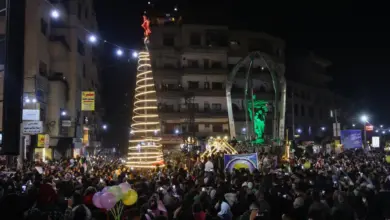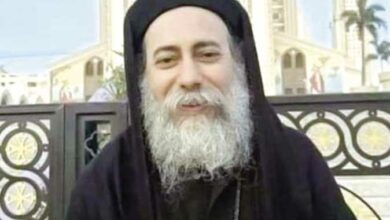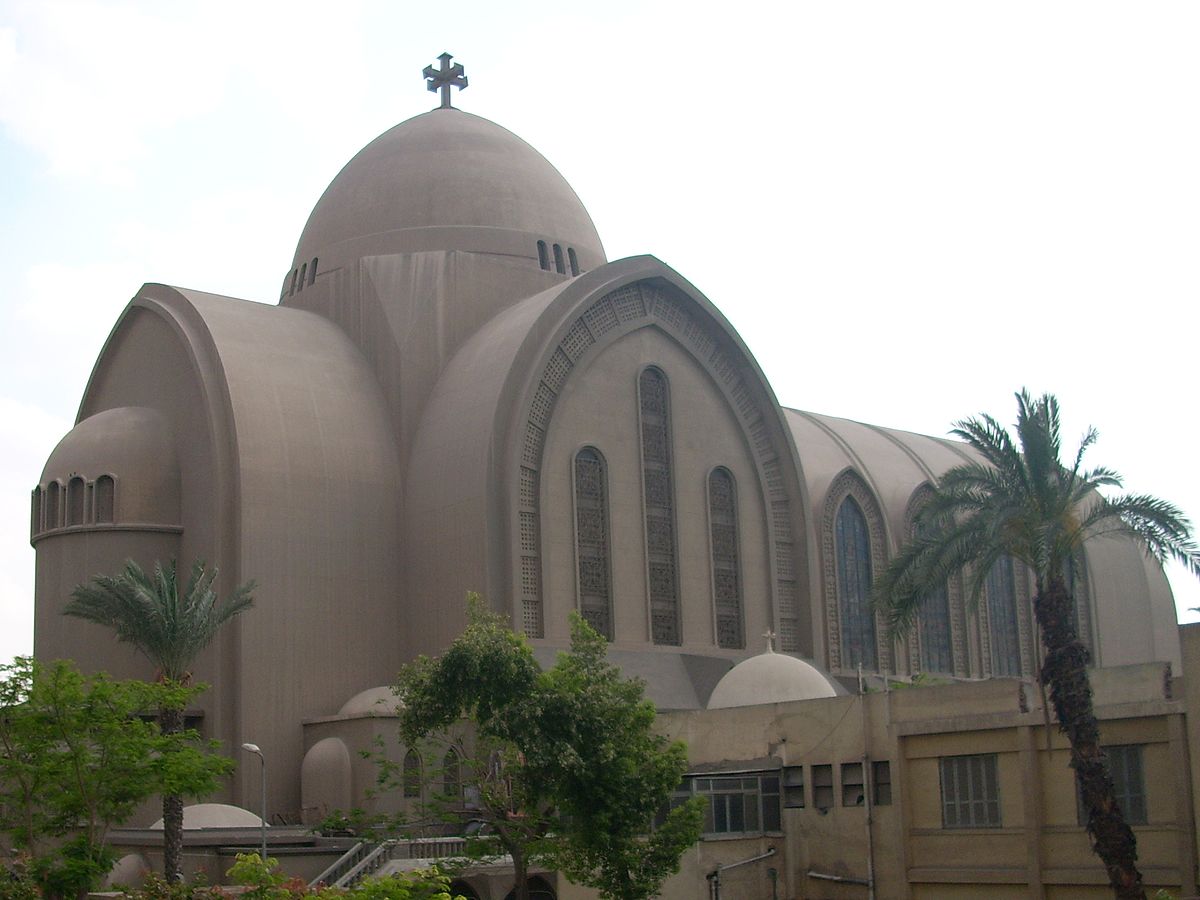In early October, after the forced migration of several Christian families from Rafah, Al-Masry al-Youm published a cartoon, the first part depicting Egyptians in 1973 saying, "We liberated Sinai from the Israelis"; the second part fast forwards to 2012, depicting heavily bearded Egyptians saying, "We liberated Sinai from the Egyptians."
The cartoonist's choice of words is a source of depressing amusement — Egyptians celebrating the displacement of their own.
But rarely do you hear Egypt's Christians referred to as “Egyptian,” whether by Christians themselves, their Muslim compatriots or the local media.
Instead, you almost always hear the word “Copt.”
The use of “Copt” when speaking about Egypt's Christians is a double-edged sword — and has no place in post-revolutionary Egypt. The time has come for us to shed labels, and think of ourselves simply as Egyptians. This, of course, is easier said than done, with so many desperately grasping at semantics.
On the one hand, there is a need among the Christian minority to cling to the word, which at its very root means “Egyptian.” This desire stems from the history of the word, which is directly connected to the land — to Egypt. It’s a matter of nationalistic pride. Ironically, it’s all about being Egyptian.
On the other hand, the word Copts, or in Arabic, Aqbat, puts a thick and guttural line between Egypt’s Christians and the rest of the country’s citizens — it’s a word that sounds nothing like the Arabic word for Egyptian, Masry. Suddenly, we’re talking about “us” and “them,” about “the other” and all the rhetoric of a nation sewn of one fabric goes out the window.
This is particularly prevalent when speaking about Egyptians living abroad.
The expression “Aqbat al-Mahgar” (the Coptic Diaspora) is commonly used in state media and tends to carry with it negative connotations. These have been made all the more prominent since the emergence of the anti-Islam film “Innocence of Muslims,” produced and promoted by an Egyptian Copt living in America. Hearing the phrase come up in connection with the film on Egyptian TV, Aqbat al-Mahgar suddenly sounded like a dirty phrase.
Just over a year ago, Egyptian TV made liberal use of the word Copt.
On 9 October 2011, as tanks crushed peaceful protesters, most of them Christian, outside the Maspero state television building, Egyptian state TV journalist Rasha Magdy called on Egypt’s honorable citizens to defend the nation’s military, which she said was under attack by armed Copts.
That night, the use of the word made it easier for state TV to create an instant division. As images of Egyptian men and women being chased down by army tanks were broadcast on live TV, simply labeling them Copts, rather than Egyptians, or even Egyptian Christians, aided a sense of disassociation.
Later that night, men marched through Tahrir Square chanting, “Where are the Copts? Islam is here.”
In conservative Salafi circles, the use of the word Copt has given way to Nasara – the Arabic word for Nazarene. Used in the Quran in reference to Christians in general, it does, however, carry with it connotations for Egypt's Christians as being outsiders, and you’ll be hard-pressed to find an Egyptian Christian who doesn’t take offense.
Egypt’s Orthodox Christians are equally culpable in encouraging or maintaining this division, happily referring to themselves as Copts.
Rarely do you hear an Egyptian Christian object to the terminology — unless they happen to belong to one of the other often forgotten denominations — minorities within a minority — that exist in Egypt, among them Protestants and Anglicans.
Despite the Coptic Orthodox Church's reputation for keeping its followers sheltered within its walls, there has been a shift in post-revolution Egypt, as Christians begin to break away more vocally on certain issues.
Under Mubarak, an attitude of keeping your Christian head down was encouraged. Demanding your rights was certainly not expected of any Egyptian, and nowhere was it more obvious than among the Coptic community.
In that time, the right to build houses of worship was regulated by a law unfair to Christians, one that has yet to be resolved. Certain jobs were and still remain out of Christian reach. And an unfinished battle continues with the church itself to amend church bylaws, which allow divorce only in the case of infidelity.
Today, Egypt is waiting for President Mohamed Morsy to fulfill his electoral promise to appoint a Christian vice president, a promise which was rejected by the more conservative political forces in the country. The Coptic community certainly isn't holding its breath waiting for Morsy to actually come through.
That's not to say that more vocal Christian groups and activists aren't vying for positive change. The Maspero Youth Union, established after the 9 October massacre, is pushing for a less political church, but a more politically aware Christian constituency. While the group identifies itself as Christian, the nature of its work focuses mainly on achieving equal rights as Egyptians.
With a newly chosen Coptic Pope Tawadros II, who was quick to establish himself as a spiritual leader planning to step aside from the political role of his predecessor, the late Pope Shenouda III, Christian activists and citizens are presented with the perfect opportunity to begin addressing issues of concern as Egyptians rather than as Copts.
Shedding the label of Copt in exchange for the label of Egyptian is one small way with which to begin to deal with sectarian issues.
And abandoning the word Copt in favor of “Egyptian Christian” makes the use of the word Nasara seem even more out of place. We need less lofty talk of Coptic and Muslim threads making up the tapestry of Egypt, and more simple talk of Egyptians working together for a better, more equal, Egypt.




